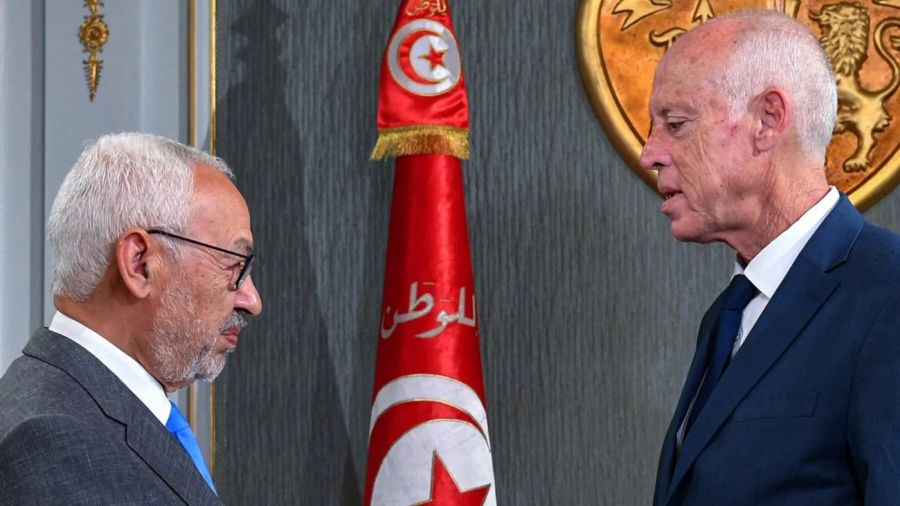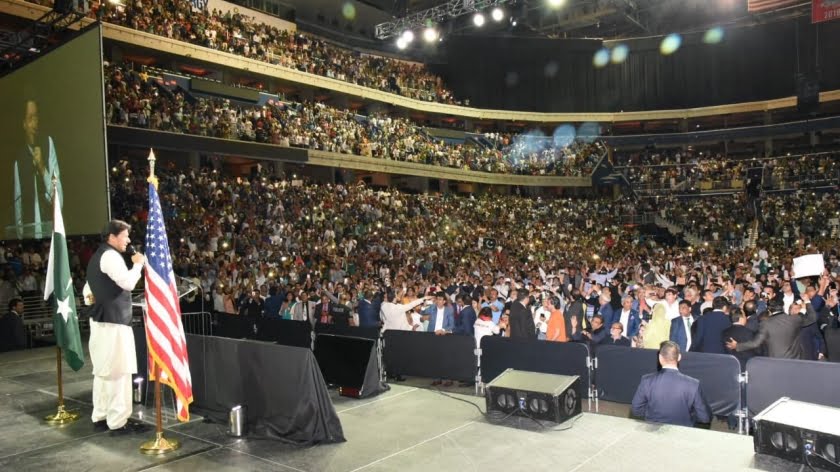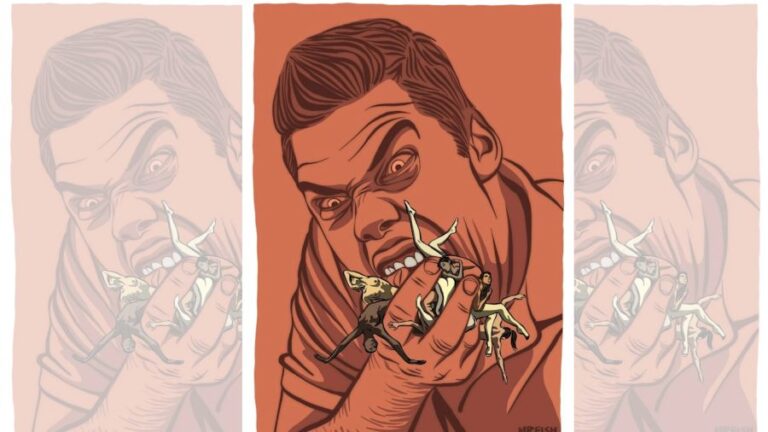Tunisia: There Is Nothing Constitutional About Kais Saied’s Coup
This time, I wish I had been wrong. I wish the document we published in May detailing how Kais Saied was going to take over Tunisia, subvert the constitution and close down parliament had been fabricated.
At the time, I was pilloried for it. No such plan existed, I was told. It was all the product of my Islamist contacts, I was told. In fact, the source of the document was secular, and inside the presidency itself.
For ten years Tunisia has lurched from one political crisis to another, but somehow managed to survive as the last man standing of the Arab Spring
The document was not just a passing letter that happened to fall into the presidential mailbox, as Saied himself maintained four days later after he was forced to acknowledge that the document was genuine.
It was a concrete plan drawn up by his closest advisers.
The document which MEE revealed stated that after the prime minister, Hichem Mechichi, and the Speaker of Parliament Rached Ghannouchi had been lured to the palace and locked up there, a general, Khaled al-Yahyaoui, would be appointed acting interior minister.
This is what happened on Monday morning. Al-Yahyaoui was duly appointed as the man who will lead the crackdown now taking place on politicians and journalists.
Not only has Saied seized all executive power, he has also appointed himself attorney general.
Saied’s actions are being framed as a reaction to the devastation caused by the pandemic. But at the time the document was leaked, the virus was not running riot in Tunis.
Under Saied’s first administration, the health minister, Abdellatif Mekki, himself a doctor, was a member of Ennahda party. His distribution of masks on the streets were universally praised as a model the rest of the Arab world should follow.
Sunday’s coup had nothing to do with the virus. It was planned at a time when the virus was under control.
One of Saied’s supporters, Samia Abbou of the Democratic Current, who welcomed Saied’s moves, let the cat out of the bag by saying on Sunday that “the presidential decisions are constitutional and historic. The president should have taken these decisions some time ago.”
Coup, pure and simple
The document labelled “absolutely top secret” called this plan a “constitutional coup”. But what happened on Sunday night went way beyond the constitution.
The constitution states that when the article that allows the president to take emergency powers is invoked, parliament is forced into continuous session, and cannot be dissolved. In fact Saied has suspended parliament and locked out its members.
Triggering Article 80 depends on the Constitutional Court, which Saied has prevented parliament from setting up, even though under the constitution it elects only four out of 12 members.
Ayyad bin Achour is the most prominent Tunisian constitutional professor who was crucial in drafting the transitional document, the constitution and the election law. He was also the head of the body that managed the transition period in 2011. He is secular and no supporter of the Islamists. Bin Ashour’s view is that this is a coup “in the fullest sense of the word“.
Similarly, Nabil Bafoun, the head of the Electoral Commission, said the commission was “in a state of shock”.
All the institutions set up after late President Zine El Abidine Ben Ali‘s ouster, everything the 2011 revolution had created to put Tunisia on the path of democracy have set their face against Saied’s actions, irrespective of their own political leanings.
So, there is nothing constitutional about this coup. This is a coup as purely and simply as the one that toppled Mohamed Morsi in Egypt in 2013 and tried to topple President Recep Tayyip Erdogan in Turkey in 2016.
Almost all parties in Tunisia are against it. From left to right, secular to Islamist – Ennahda, Al Karma, Qalb Tunis, Al Joumhouri, and not least the Democratic Current itself of which Abbou is a member.
At the time of writing only one political party, Achaab, is in favour of Saied’s actions. It’s not difficult to see why. In the Arab world, once you grab all the power, you don’t give it back.
Saied has made no secret of his desire to change Tunisia’s political system. Mechichi, the prime minister with whom he clashed, was Saied’s appointment, ratified by parliament. Rifts between the two men widened when Saied refused to ratify Mechichi’s ministerial appointments.
The conflict between the president and the prime minister was not about ideology – none of the ministers were political and Ennahda for one had no hand in them. It was supposed to be a government of technocrats.
The row was about power and Saied wanted all of it.
From dreamer to dictator
In the end, it was a maverick professor of law like Saied, not a wizened hand from the old regime like Beji Caid Essebsi, that did for Tunisia’s experiment with democracy.
It was a maverick professor of law like Saied, not a wizened hand from the old regime like Beji Caid Essebsi, that did for Tunisia’s experiment with democracy
To his credit, Essebsi resisted the money on offer from Abu Dhabi to ditch Ennahda.
He opted instead for the art of political compromise. His party fell apart as a result but Tunisia did not. Such an art is anathema to Saied, an outsider with no political party behind him, who was backed by Ennahda as the least worst alternative for presidential candidate, who nurtured ideas of his own.
Nidhal Mekki, who studied under him, described Saied as a dreamer who would seek transformational change as president. “Mr Saied has some reservations about representative democracy as it is practised and experienced in Tunisia,” Nidhal told MEE in 2019. “He is not against it categorically, but he would like to correct it by introducing a dose of direct democracy.”
Saied has proved himself to be the source of political instability. He has ruled by swerving from threat to emollience and back again. In April, he claimed he was the supreme commander of both the military and the country’s internal security forces, when the constitution had put the internal forces under the control of the prime minister.
In June, he singlehandedly rewrote Tunisian history by saying France had nothing to apologise for during its colonial rule of his country. Saied declared that Tunisia had been under French “protection” not colonial rule. Considering how many Tunisians had been assassinated and raped under colonial rule since 1881, that takes some arrogance.
But his many body swerves has one political direction. His only motive for repeatedly thwarting the nomination of positions for the Constitutional Court – even though four are chosen by the presidency, four by parliament and four by the judiciary – is to stop a body that can rule his moves unconstitutional from existing.
As a professor of law, one would have thought that the principle of the separation of powers would have been embedded in someone like him. But Saied neither owns up to his mistakes, nor does he take responsibility for the suffering of Tunisians
The chaos of government is his chaos, as Tunisia will soon learn when Saied has neutered parliament and arrested the political opposition.
One minute the presidency announces it has received 1000 doses of the vaccine from the UAE and rumours spread that a number of parliamentarians and officials have already been vaccinated. The next the presidency denies all knowledge of the “gift”.
Last man standing
For ten years Tunisia has lurched from one political crisis to another but somehow managed to survive as the last man standing of the Arab Spring.
Ennahda was not like the Muslim Brotherhood in Egypt. It compromised, it gave up power voluntarily. It did deals to split the opposition. But neither could it deliver the economic change its country so desperately needed. For the average Tunisian, especially its youth, things went from bad to worse.
For much of this time, Ennahda was not in control of the country or the government, but it was fighting to create institutions like parliament, like the Constitutional Court which would cement Tunisia as a democracy.
If the Tunisian experiment with democracy is indeed at its end, it means that Tunisians will accept the argument made by dictators all over the Arab world that they are not ready for democracy, that they are fit only for flakey and vicious dictators.
I don’t believe that the Arab Spring is dead, nor do I believe that the Tunisian people are ready to go back to one-man rule. The following days could prove me right, once again.







